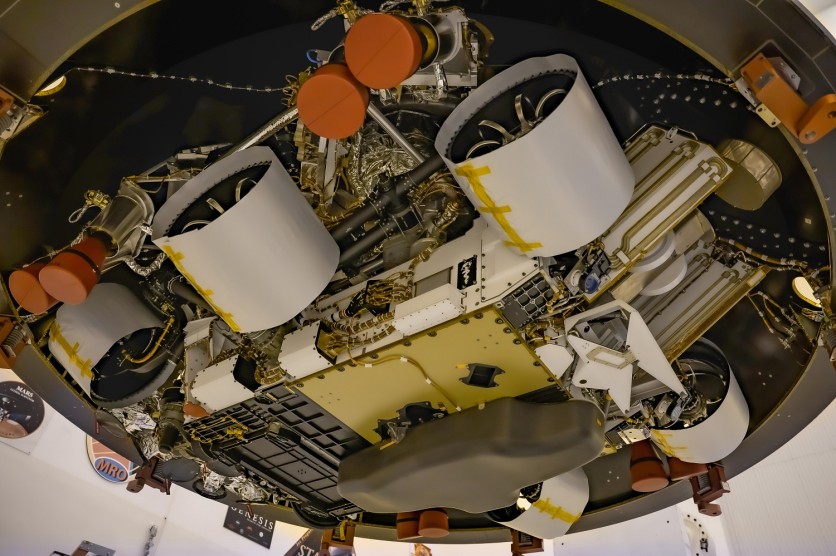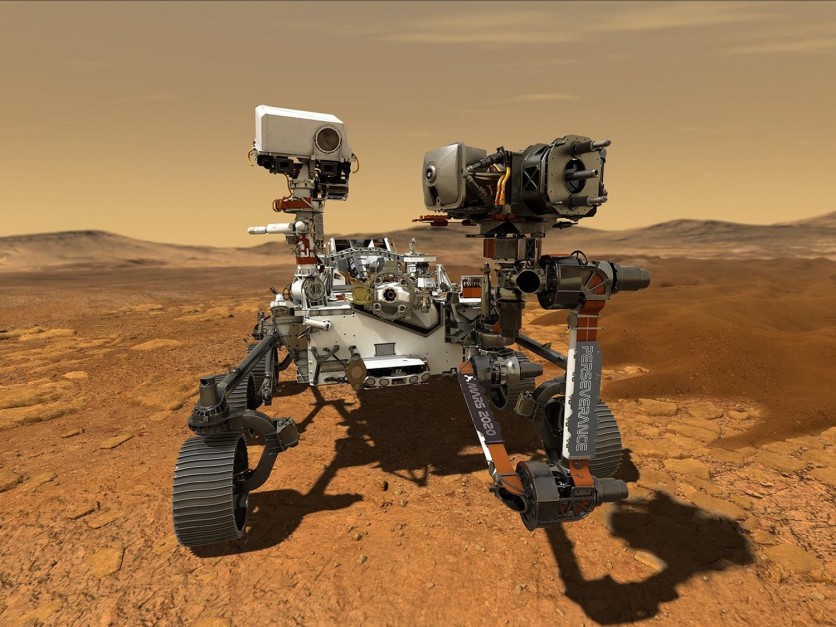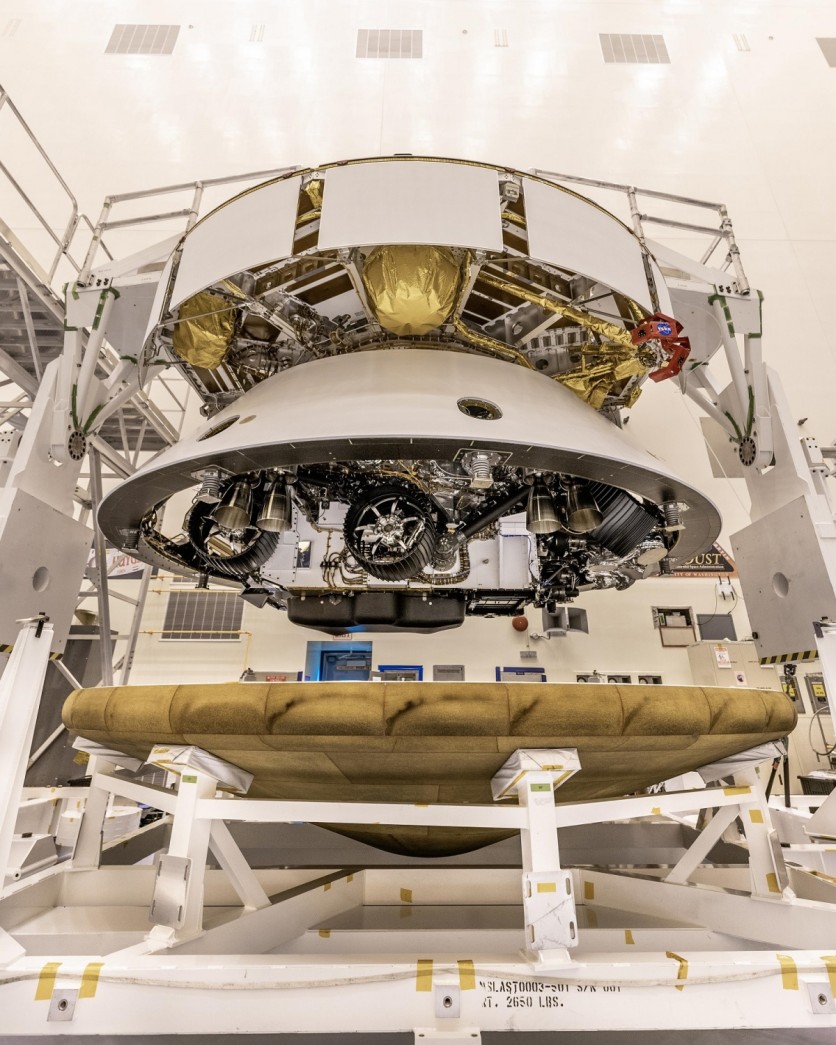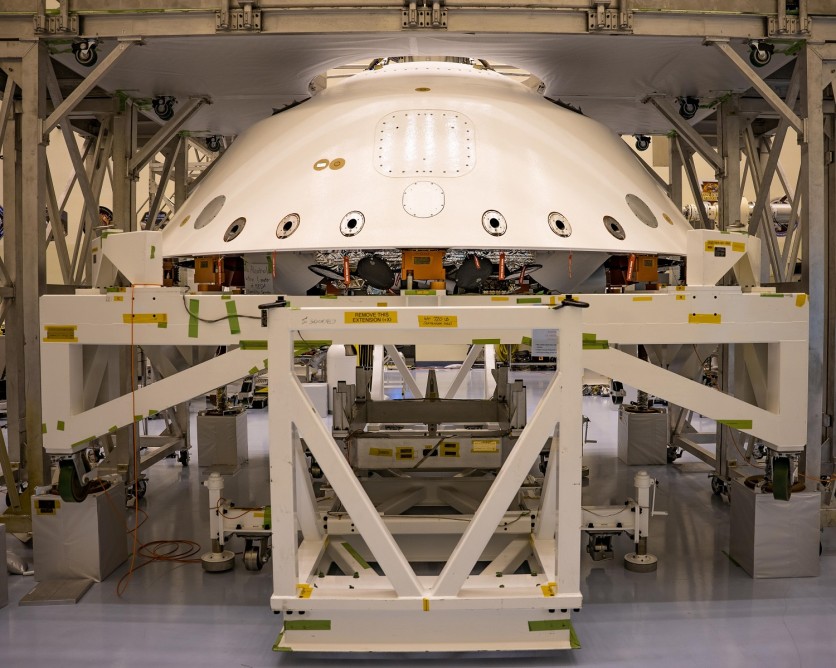NASA's next Mars mission will leave a tribute to healthcare workers fighting the coronavirus pandemic on the Red Planet.
On the left side of the Perseverance rover will be an aluminum plaque that shows the Earth supported by a medicine serpent symbol. This symbolizes the medical personnel across the globe who are battling against the COVID-19. Perseverance will land in Mars' Jezero Crater in February next year.
A 3-by-5-inch aluminum plaque, showing planet Earth being supported by the ancient staff-and-serpent symbol of the medical profession, will grace the left side of the rover chassis.

Mars mission's deputy project manager Matt Wallace said the plaque is a sign of appreciation to the health workers' sacrifices and by members of the team who had to go to extraordinary lengths to ensure the $2.4 billion mission right on schedule for its launch on July 20.
"The community, and the country, and around the globe, everybody had to deal with this," Wallace said on during a press briefing at NASA's Jet Propulsion Laboratory. Wallace said his team designed the COVID-19 Perseverance Plate "to symbolize and mark these challenges that we faced."
Perseverance was named by a seventh-grader in March when the pandemic was just starting.

While she was initially unsure about the name, deputy project scientist Katie Stack Morton said in a NASA video: "I'm a convert now."
"Perseverance is the right name for the rover. It's amazing serendipity that we get to persevere through working on Perseverance. I think now it's a really important symbol of humanity, hopefully persevering through this great challenge," Morton said.
Prepping Perseverance during the pandemic
Launching a spacecraft to Mars comes around every 26 months only to ensure efficiency. Thus, NASA is getting Perseverance ready and is going above and beyond to keep the project going while ensuring the safety of the mission team.
"If we have to take Perseverance and put it back into storage for two years, it could cost half a billion dollars," said NASA Administrator Jim Bridenstine.

Due to the pandemic, JPL has instituted "Safe at Work" rules for mission-essential workers who do their tasks with social distancing, mandatory masks, and deep cleaning. Similarly, NASA's Kennedy Space Center workers are also extra careful about keeping the room conditions clean.
Wallace said they aim to "keep the team safe or safer than they would be if they were not working." "Putting a spacecraft together that's going to Mars, and not making a mistake - it's hard, no matter what. Trying to do it during the middle of a pandemic, it's a lot harder," he added.
Aside from the coronavirus pandemic, the Perseverance team also had to cope with technical challenges. These include redesigning the parachute system, so it can withstand the aerodynamic forces during the spacecraft's descent into the Martian atmosphere.
Known as "the seven minutes of terror," Perseverance would experience what Curiosity rover did during its successful 2012 entry, descent, and landing on Mars.
The Perseverance rover weighs 1 ton and is comparable to an SUV in size. The six-wheeled rover is built on the same structural foundation as that of Curiosity and is designed to run on plutonium-powered generators, although their consoles are largely different from each other
How NASA prepares Perseverance before the launch
Perseverance is kept inside a protective aeroshell that will protect the ship when it descends into Mars. This is in preparation for its historic launch from Cape Canaveral on July 20. Earlier this year, the rover was connected with its descent stage within a room at Kennedy Space Center in Florida.

Despite the ongoing pandemic, engineers are working to affix the rover and descent system inside the spacecraft's backshell, and Space Flight Now discussed how NASA prepares the rover. The atmospheric entry vehicle linked onto the cruise stage, which will guide the spacecraft during its travel to Mars.
Recently, engineers added the super-clean sample collection tubes, which will be used to gather core samples on Mars for eventual return to Earth. Ground crews added the rover's heat shield that measures about 15 feet in diameter. It closes up the rover inside the cocoon that will protect it when it enters the hot Martian atmosphere.

Next, the spacecraft will be prepared for its launch by mounting it on the adapter structure and connecting the payload to its United Launch Alliance Atlas 5 rocket, which will be completed this week. It will be then be followed by encapsulation inside the Atlas 5's bulbous white payload fairing, made by RUAG Space in Switzerland follows
Once complete, Perseverance will be moved to ULA's Vertical Integration Facility at Cape Canaveral Air Force Station while a crane will lift it atop the Atlas 5 rocket by June 26.
Read also: If You Want to Leave Earth, You Have Six Billion Planet Options in Milky Way
ⓒ 2025 TECHTIMES.com All rights reserved. Do not reproduce without permission.




